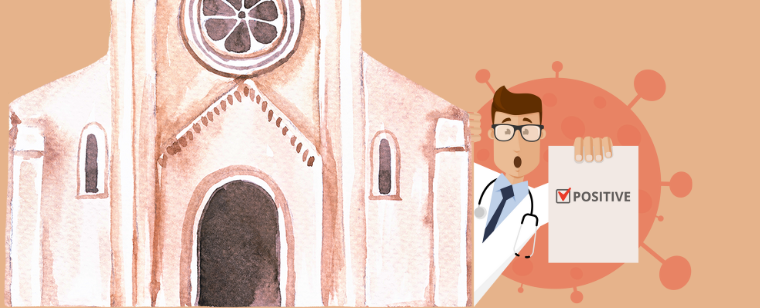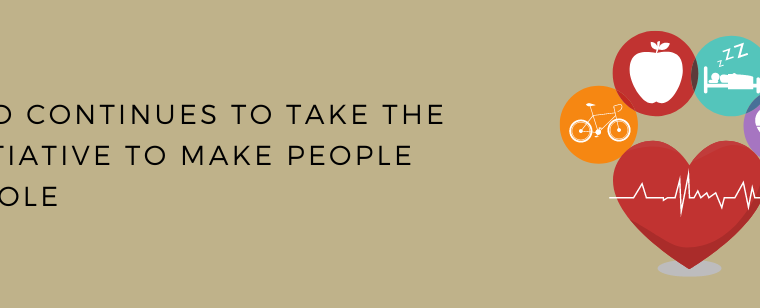A Fall Cornucopia of Links
COVID updates and points of interest
Some weeks, I have a particular subject to dig into for this newsletter. Other weeks, the subjects are a little more diverse, shall we say. It’s one of those weeks.
Let’s get right to it.
Respiratory Updates
The respiratory illness season seems to be picking up steam across the nation. The wave still hasn’t quite made it here, though. It’s true COVID wastewater levels and hospitalizations are elevated in Wisconsin. But they have not shown explosive growth in recent weeks. Meanwhile, measures of influenza-like illnesses are normal range for this time of year.
We’re not out of the woods yet, though. We’re still a few weeks out from when we’d expect to see the wave start, with a peak in late December or early January. As well, RSV infections have soared nationwide. That’s led to long waits for emergency care in the South. It’s also caused backups in critical patient admissions to ICUs. That’s a particular concern for kids, who need specialized care and medication.
The short version is the same as it has been for a while now: Things aren’t too bad yet, but they’re probably going to get worse at some point. Get your boosters now before they do.
With that, let’s get to the points of interest:
Other COVID news
-
There’s a new dominant strain in the U.S. called HV.1. Here’s what to know about it.
-
As we get closer to the holidays, don’t forget that you can still get four free COVID test kits through the U.S. mail.
Vaccine underuse
-
Not great: A third of Americans believe they don’t need flu or COVID booster vaccines because they’re not at risk from the diseases.
-
Also not great: Pediatric antiviral medications are probably being underused. That’s according to a study in the journal Pediatrics.
-
Most not great: the CDC reports that exemptions for childhood vaccinations are at their highest level ever. Much of that is because of misinformation and general distrust of the health system. Wisconsin is one of ten states where the rate has climbed above 5%. Really not great.
-
Jennifer Dowd of Those Nerdy Girls lays out the counterargument on COVID boosters. Read all her points on why everyone should get a booster. They’re good! This one in particular is worth highlighting: We don’t actually have a good read on who’s at high-risk for severe COVID. Generally speaking, age is a factor. But for now, there is no foolproof way to predict who will get a mild case and who will get something much worse. As Dowd says, it’s not a gamble worth taking. (You can see a more detailed version of her article at STAT news.)
Long COVID
-
Here’s one reason gambling on COVID is a bad bet: Every infection brings a risk of developing post-COVID sequelae, or long COVID. That’s a bad thing.
-
Long COVID is a really bad thing. A study published by the CDC found that “Health-related quality of life scores among long COVID patients in the United Kingdom were similar to those of patients with advanced cancers, and 53% reported moderately severe functional impairment, worse than that associated with stroke.”
-
If you want to know even more about long COVID and why it is a bad thing, check out Sick Times, a new online publication on long COVID and similar conditions. I’m not in love with the name, but the information is rock-solid.
Other Points of Interest
-
I mentioned pharmacy deserts last month, and now here’s more information on them. As you might guess, there is an equity issue involved. Independent pharmacies struggle to survive against corporate chains. So do those whose customers rely heavily on Medicare and Medicaid prescription benefits, corporate or not.
-
I don’t often expect to find relevant material in an outlet named something like “Thrifty Guardian,” yet here we are. The low uptake of COVID boosters has led some to question if cost is a factor, and if the government should be doing more to organize and promote the new vaccines.
-
Wisconsin DHS has launched a new service called Wisconsin Wayfinder. It’s meant to connect families to resources for their kids. Sounds like something to go in the pastor’s resource folder.
-
Emily Smith, a.k.a. Your Friendly Neighborhood Epidemiologist, has a nice piece on Jesus and Vaccines. She also recently released a book on the subject titled The Science of the Good Samaritan.
That’s it from me for this week. And next week, actually: I’m out on vacation. We’ll see you the last Wednesday of November with a coherent theme, I swear.




